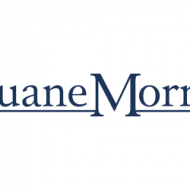OSHA Announces Enforcement of Emergency Standard Requiring Vaccination or Testing – but Further Stay Is Sought

Duane Morris LLP
December 20, 2021
OSHA’s Emergency Temporary Standard on COVID-19 Vaccination and Testing (ETS) is now in effect. The U.S. Court of Appeals for the Sixth Circuit reinstated the OSHA ETS (which had previously been stayed by the Fifth Circuit) on December 17, 2021. OSHA then announced that for employers making reasonable, good faith efforts to comply with the ETS, it would not begin enforcing: (1) all ETS requirements other than testing until January 10, 2022, and (2) the ETS testing requirement for unvaccinated employees until February 9, 2022.
As explained in our November 8, 2021, ETS Alert, the ETS requires employers with 100 or more employees to develop and implement a policy requiring that employees either become fully vaccinated or undergo weekly testing and wear a face covering at work. The ETS also requires employers to determine and document each employee’s vaccination status, provide paid time to employees to become vaccinated and reasonable time and paid sick leave to recover from any side effects, remove employees from the workplace who test positive or are diagnosed with COVID-19 and report COVID-19 fatalities and hospitalizations to OSHA. Under the ETS, employers were initially required to comply with all requirements other than testing by December 6, with the testing requirement to be met by January 4, 2022. As noted herein, these dates have changed for employers making good faith efforts to comply.
The fate of the ETS remains far from clear. Multiple emergency petitions have already been filed with the Supreme Court of the United States, seeking to further stay the ETS and a ruling that it is unenforceable. While the Supreme Court’s earlier rulings do not clearly indicate the outcome here, it should be noted that to date, the Court has refrained from setting aside state and local COVID-19 vaccination mandates. It is not known when the Supreme Court will decide whether or not to stay the ETS. However, since the Court has requested that the Biden administration respond to the requests for a stay of the OSHA mandate by December 30, a ruling from the Supreme Court is not anticipated before then.
If the Supreme Court does not issue a stay, state or local restrictions on vaccine mandates will not likely protect employers from enforcement of the ETS. The ETS provides that it preempts state and local laws that conflict with its requirements, although we expect that issue to be litigated if the ETS is upheld. The ETS does not appear to preempt laws that impose obligations that go beyond the ETS, such as the New York City vaccination mandates, initially applicable to restaurants and entertainment venues, and now also applicable to all private employers effective December 27, 2021. Accordingly, employers should comply with more stringent state or local mandates, including those requiring vaccination (without a testing option) and masking of vaccinated employees.
Unless the Supreme Court issues a stay (or a stay is issued by all of the Sixth Circuit judges, en banc), employers should anticipate that OSHA will commence enforcement of the ETS. OSHA had suspended enforcement while the Fifth Circuit stay was in effect. However, OSHA’s website now states:
To provide employers with sufficient time to come into compliance, OSHA will not issue citations for noncompliance with any requirements of the ETS before January 10 and will not issue citations for noncompliance with the standard’s testing requirements before February 9, so long as an employer is exercising reasonable, good faith efforts to come into compliance with the standard.
Given the recent rise of COVID-19 cases in the United States and an omicron surge currently upon us, many employers are already reevaluating their approach to managing the risks COVID-19 presents to employee health and business continuity. Among the issues being considered (or reconsidered) are whether, when and how to return remote workers to the workplace and whether to include boosters in vaccination mandates.
In the absence of a further stay, employers are well-advised to make reasonable, good faith efforts to comply with the new deadlines. Preliminary steps (if not already taken) for compliance include: (a) determining and documenting who is and is not fully vaccinated, in a manner consistent with the ETS; and (b) deciding the approach for vaccination and/or testing if the ETS is or is not enforced. This second step, in particular, raises myriad legal and practical considerations (many of which are addressed in our ETS Alert)―not the least of which are managing the logistical and legal issues regarding mandatory testing―and if vaccines are mandated, the process for addressing requests for accommodations.








